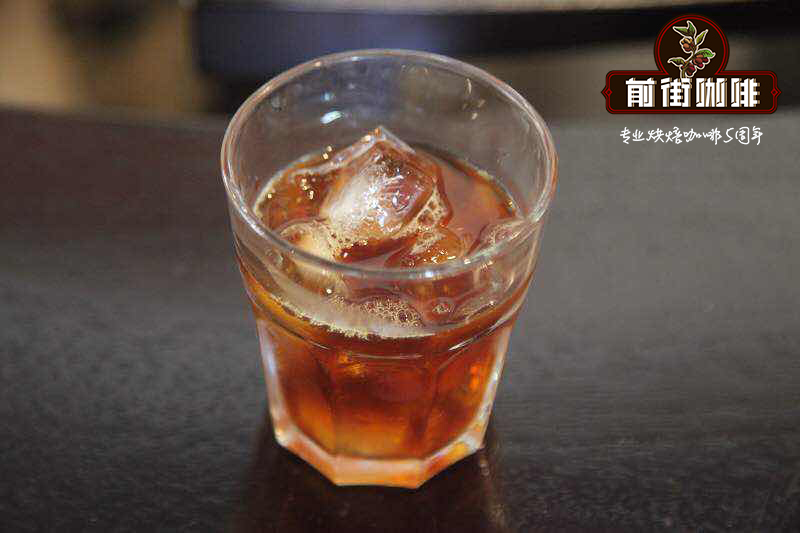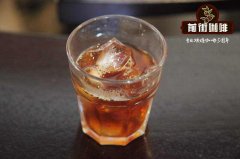How does Jamaican Blue Mountain Coffee taste? Is the price of the front street Jamaican Blue Mountain coffee expensive? Jamaica

Professional coffee knowledge exchange more coffee bean information please follow the coffee workshop (Wechat official account cafe_style)
How does Jamaican Blue Mountain Coffee taste? Is the price of the front street Jamaican Blue Mountain coffee expensive? What are the coffee producing areas in the Blue Mountains of Jamaica?
Jamaican coffee beans have a long history. In 1728, the then British Governor Nicholas Lowe Sir Nicholas Lawes imported coffee from French Martinique Island to Jamaica. Because the local climate was very suitable for growing coffee beans, Jamaica exported 83000 pounds of high-quality coffee nine years after its introduction. R.S.W Blue Mountain Coffee is composed of three local coffee estates Resource, Sherwood Forest, and Whitfield Hall in the Blue Mountain region of Jamaica. It is the most stable and best quality of Blue Mountain Coffee. Each manor has a history of more than 1800 years. The owner of the Blue Mountain Coffee worked together to create a legend of barreled Blue Mountain Manor brand coffee a few years later. R.S.W only deals with coffee produced by its own manor group and will never buy beans from other estates. They mainly use the Sherwood Coffee processing Plant (built before 1800) as their exclusive processing plant, where coffee cherries from the three estates are sent for processing, and the freshly harvested coffee cherries are placed in a humidity-controlled storeroom, with great care in every detail of the process, so that they can provide buyers with the best Blue Mountain coffee.
The Blue Mountain Coffee producing area is located in the east of Jamaica. Only those growing in this area at an altitude of 3000 feet to 5500 feet are authentic [Jamaican Blue Mountain Coffee] (Jamaica Blue Mountain), while others growing at an altitude of 1500 to 3000 feet can only be called [Jamaican Alpine Coffee] (Jamaica High Mountain). Coffee grown below 1500 feet above sea level is [Jamaica's preferred coffee beans] (Jamaica Supreme) or [Jamaican low-altitude coffee beans] (Jamaica Low Mountain). Coffee is not allowed in conservation forests above 5500 feet.
The serious efforts made by the Government of Jamaica were mainly to increase coffee production and to build a central coffee processing plant to facilitate coffee treatment and raw bean grading, which did improve the quality but not very successfully. Canada, the largest buyer of Jamaican coffee in 1943, still could not accept this quality. In 1944, the Jamaican government set up a central coffee [water] treatment plant, where all coffee to be exported had to be processed and graded. The Jamaican Coffee Authority was established in June 1950 and the state is officially responsible for the quality of coffee beans for export. There are currently five government-certified 100% Blue Mountain Coffee processing plants: Wallenford,Mavis Bank,Old Tavern Old Inn, Silver Hill,Moy Hall.
Blue Mountain Coffee is a high-quality Caribbean coffee, which, like other countries, has been damaged by natural hurricanes. I have seen too many damaged bean cups and the taste of kale. Prices are always affected or even unmarketable in years hit by hurricanes. In addition, the hot and humid environment of island countries often makes coffee moth-eaten or white spots, and coffee beans with real zero defects are always rare. In addition, the Japanese purchase of 70% of the Blue Mountain Coffee makes the price high. The real high-altitude 100% pure Blue Mountain coffee is produced by the Jamaican national processing plant. The coffee is packed in a special barrel and there is a certificate on each barrel.
Property Characteristics: farm characteristics
Manor: composed of three manors in RSW Estates R.S.W
Grade grade: Certified 100% Blue Mountain official certification 100% Blue Mountain Coffee
Region producing area: Blue Mountain Blue Mountain
Country country: Jamaica Jamaica
Mark marked: Sherwood Coffee processing Factory
Altitude altitude: 3000 Murray 5500 feet
Coffee Characteristics: coffee characteristics
Varietal Variety: Jamaica Blue Mountain Cultivar cultivated in the Blue Mountains of Jamaica
Processing treatment method: Wet-processed washing method
Appearance appearance: 0 d/300gr, 18 Screen (0 defect / 300g, 18 eyes)
Top Jury Descriptions comment: the baking degree (Cinnamon) measured by the cup at the beginning of 60 seconds of explosion.
Aroma / flavor flavor: cereal, alpine oolong tea, jasmine, chamomile, flowers, brown sugar, honey
Acidity: very fresh, clean, pink, citrus, green malic acid, mild to moderate acidity
The complexity of complex is similar to that of other: smooth and gentle, balanced and soft, delicate and delicate, mellow, floral fragrance and long rhyme, and the remaining rhyme is not converted to sweet until the middle part.
Overall comment: R.S.W Blue Mountain Coffee is of very good quality, accounting for only 1% of all Blue Mountain Coffee production, which can only be bought in certain boutique coffee shops, and only some of these 1% will be sold to specific coffee buyers. This supply is really very limited. This is the fresh floral aroma in the mild and balanced flavor of the newly harvested R.S.W Blue Mountain Coffee in 2011.
Qianjie recommended cooking:
Filter cup: KONO filter cup
Water temperature: 88 degrees
Degree of grinding: small Fuji degree of grinding 4
Cooking method: the ratio of water to flour is 1:14, 17g powder, 25g water for the first time, steaming for 30s, and 238g water for the second time. The extraction time is about 2:30 seconds.
Analysis: there are not many ribs at the bottom of the Kono cup, and the filter paper clings to the filter cup to achieve the purpose of limiting air flow, which can make water and coffee powder have longer contact soaking time in the filter cup and ensure the extraction time and extraction rate of rough grinding. In this way, the coffee powder can be fully extracted, enhance the mellow taste and make the taste more concentrated.
Flavor: well balanced, clean, thick and solid on the palate, with a long dark chocolate finish.
Important Notice :
前街咖啡 FrontStreet Coffee has moved to new addredd:
FrontStreet Coffee Address: 315,Donghua East Road,GuangZhou
Tel:020 38364473
- Prev

[unique wet planing] the smell of Manning in Aceh, Sumatra? Sumatra Mante
Professional coffee knowledge exchange more coffee bean information please follow the coffee workshop (Wechat official account cafe_style) [unique wet plane treatment] the taste of Manning in Aceh, Sumatra? The story of the origin of Sumatra Mantenin coffee beans? Indonesia is the largest archipelago country in the world. Arabica coffee was introduced into the Netherlands during the colonial period in the 18th century and was grown until modern times.
- Next

How much is a cup of Blue Mountain coffee in the front street? What is the taste and flavor of Blue Mountain Coffee? Blue Mountain Coffee
Professional coffee knowledge exchange more coffee bean information please follow the coffee workshop (Wechat official account cafe_style) in front of the street how much is a cup of Blue Mountain coffee? What is the taste and flavor of Blue Mountain Coffee? Does Blue Mountain Coffee drink with milk? How to cook it? The front street Jamaica Blue Mountain Coffee beans authentic BlueMount Blue Mountain NO.1 Coffee 100g roasted Blue Mountain Mountains are located on the island of Jamaica (J
Related
- Detailed explanation of Jadeite planting Land in Panamanian Jadeite Manor introduction to the grading system of Jadeite competitive bidding, Red bid, Green bid and Rose Summer
- Story of Coffee planting in Brenka region of Costa Rica Stonehenge Manor anaerobic heavy honey treatment of flavor mouth
- What's on the barrel of Blue Mountain Coffee beans?
- Can American coffee also pull flowers? How to use hot American style to pull out a good-looking pattern?
- Can you make a cold extract with coffee beans? What is the right proportion for cold-extracted coffee formula?
- Indonesian PWN Gold Mandrine Coffee Origin Features Flavor How to Chong? Mandolin coffee is American.
- A brief introduction to the flavor characteristics of Brazilian yellow bourbon coffee beans
- What is the effect of different water quality on the flavor of cold-extracted coffee? What kind of water is best for brewing coffee?
- Why do you think of Rose Summer whenever you mention Panamanian coffee?
- Introduction to the characteristics of authentic blue mountain coffee bean producing areas? What is the CIB Coffee Authority in Jamaica?

